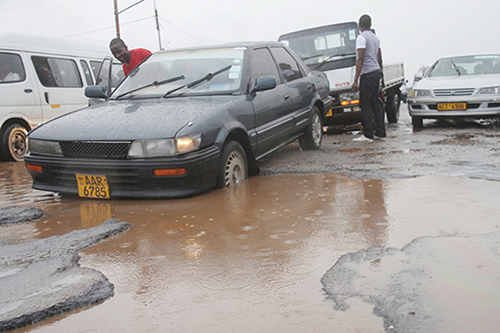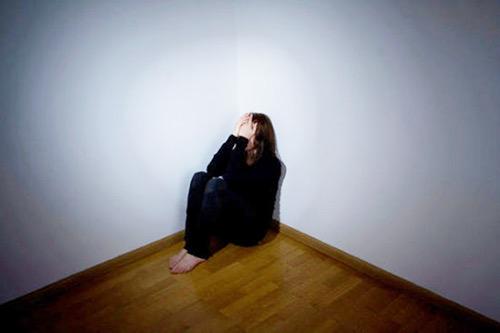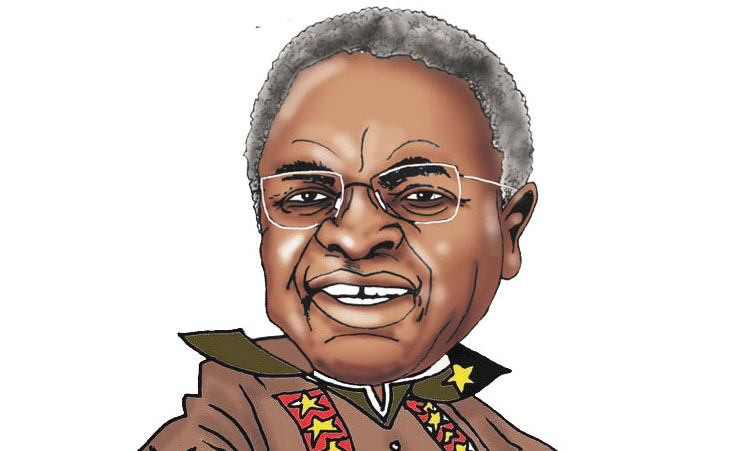HARARE – A joke doing the rounds in Harare is that whenever a motorist is seen driving straight ahead without meandering from one side of the road to the other, then that motorist should be too drunk to notice potholes along the road.
Most of the city’s roads, especially those in the residential suburbs and industrial areas, have become so riddled with potholes that some motorists think twice before driving along certain routes for fear of damaging their vehicle suspensions.
Driving becomes especially bad at night or during the rains when motorists unknowingly plunge into deep potholes and damage their vehicles.
This is not only limited to Harare but is prevalent in all the cities in the country.
Motorist Cliff Chiunda said the state of disrepair “is not just bad but also traumatic to say the least.”
“You see, it is one time in my experience today as a driver that I have had to maneuvre with much care that I tend to literally lift myself slightly from my seat in the vain hope to put less weight on my car. Of course this does not help in any way but one just feels for the machine.”
He said each journey from home and back had become a nightmare.
“How many times nowadays do we see poor ladies stuck in the middle of nowhere with flat tyres or badly damaged rims?” he asked, adding that one could not afford to be stuck at night in the middle of the road because one would become meat for muggers and robbers.
While acknowledging that some of the major roads were being repaired, he said other minor roads had been neglected for years.
“Even fellow citizens who used to thrive on the use of four-wheel drives are now scared too,” he said.
Chiunda’s sentiments were echoed by the coordinator of the Harare Residents Trust, Precious Shumba, who said the road infrastructure was totally broken down.
He said funding for road maintenance and upgrading must come from the property tax charged on residents’ bills, vehicle licensing and government grants.
However, vehicle licensing has since been transferred to the Zimbabwe National Road Administration (ZINARA) and local authorities get disbursements therefrom, which they argue are too little to cater for their maintenance programmes.
Harare’s Director of Engineering Services Phillip Pfukwa said in an interview the council was getting very little from ZINARA for road rehabilitation, maintenance and upgrading.
“In 2014 we were given between US$250 000 and US$300 000 for the whole year against a budget of US$15 million,” he said.
Pfukwa said the council was operating on a tight budget and could not source funds elsewhere, but was going to seek loans for road rehabilitation and maintenance.
Shumba said, however, that local authorities had to find alternative ways of fully funding their road rehabilitation and maintenance programmes.
One way of achieving this would be for them to unite and lobby parliament to amend the law to provide for the fair and transparent modality for the disbursement of road funds to them, he said.
“The local authorities should also seriously pursue joint venture projects with private partners along build, operate and transfer models,” he added.
He also urged the government to develop a clear model of disbursement of funds being generated through the country’s toll gates so that all major roads are resurfaced.
“Communities should also take an active role in the filling up of potholes, working in collaboration with municipal engineers. The task at hand is no longer for the government alone but for all citizens to take seriously the issue of improving our road infrastructure.”
In a number of suburbs, volunteers are filling potholes using bricks and gravel, but in most cases the fillings do not last as the rains wash them away.
Pfukwa said while some major roads were being rehabilitated, there was nothing much the city could do at the moment because of the rains which will only end between March and April.
“I always say pothole patching should be a perennial thing, but because of funding we cannot do this. The efforts we are not making this year are to reseal the roads and do reconstruction where necessary, but not much work can be done at the moment. But I think the greater work should be done as soon as the rains are over,” he said.
Pfukwa said the state of some roads no longer required mere refilling of potholes, but complete resealing and reconstructing.
“Now we are working hard with stakeholders including ZINARA and City of Harare to raise capital to do meaningful work. This year we should raise for the whole work US$200 million. In fact we need US$200 million a year for the work. Anything less than that means we are reducing our capabilities,” he said.
Stay informed with The Namibian – your source for credible journalism. Get in-depth reporting and opinions for
only N$85 a month. Invest in journalism, invest in democracy –
Subscribe Now!










